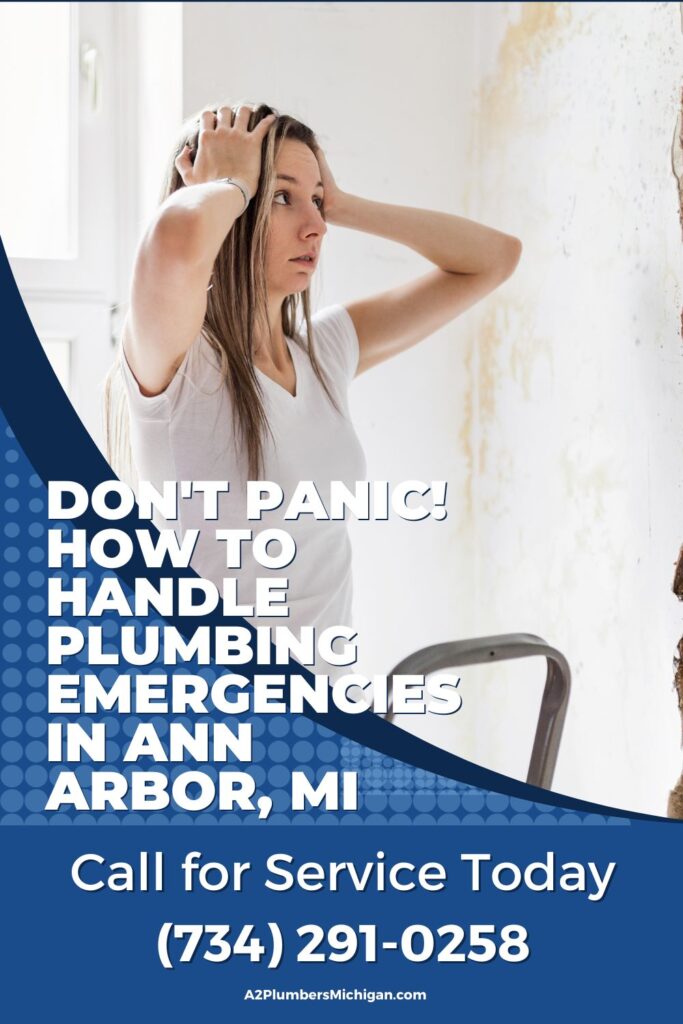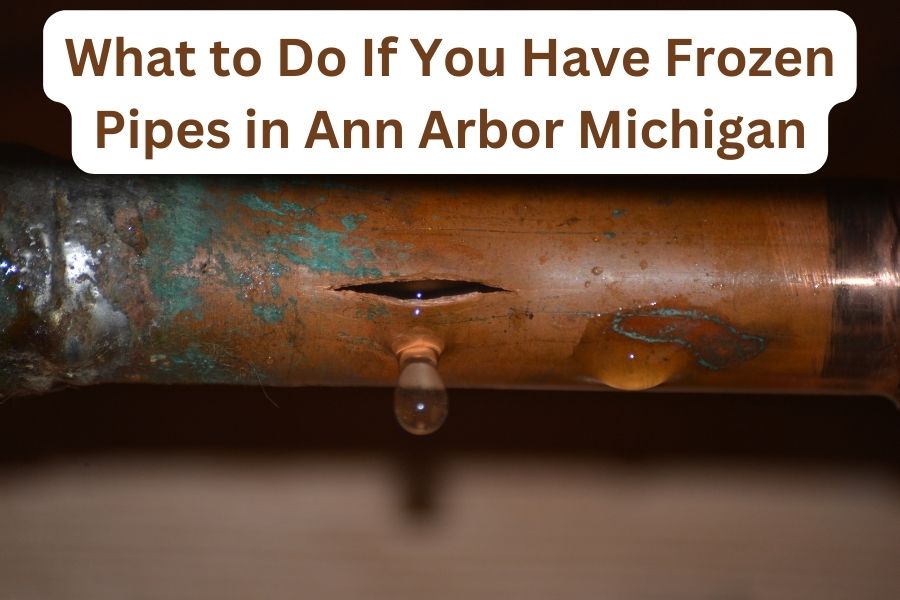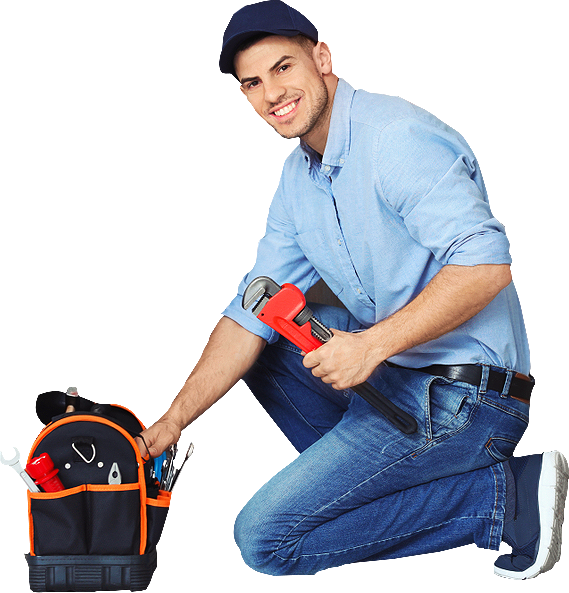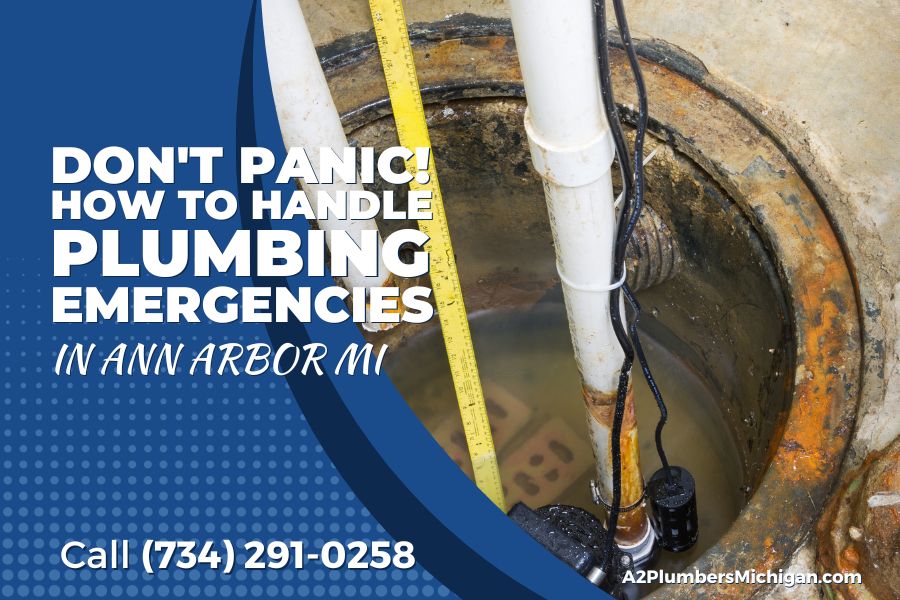In the city of Ann Arbor, residents often encounter a range of plumbing emergencies that require swift action. These commonly include leaks or burst pipes, which can cause extensive water damage if not addressed quickly. Blocked drains are another frequent issue, leading to slow water drainage, flooding, and unpleasant odors. Faucet drips may seem minor but can lead to significant water waste over time. In the winter months, frozen pipes pose a severe risk, potentially leading to costly repairs if not properly thawed. Lastly, sewer system backups are an extreme concern, causing significant disruption and potential health hazards.

Preventing Plumbing Emergencies
Performing routine maintenance and scheduling annual inspections are excellent preventive measures to avoid plumbing emergencies. Regular maintenance, such as cleaning your drains and inspecting for minor leaks, helps keep your plumbing system running smoothly. It’s important to promptly repair any minor issues to prevent them from escalating into more significant problems.
Annual inspections performed by a certified professional are also vital. These inspections can uncover hidden issues such as weak pipes, potential blockages, or faulty equipment that might not be apparent to the untrained eye. Regular inspections allow you to address these issues proactively, preventing disruptive and potentially costly emergencies. Always hire a licensed and insured plumber for these inspections to ensure a comprehensive and reliable assessment of your home’s plumbing system.
Common Plumbing Emergencies
Leaky Faucets or Pipes
Leaky faucets or pipes are among the most common plumbing emergencies. While they might seem minor, over time, they can lead to significant water waste and increase your utility bills. If you notice a dripping faucet or a leaking pipe, it’s crucial to address it promptly. For a faucet, it could be as simple as replacing a worn-out washer. For leaky pipes, however, the issue can be more complex and might require professional intervention.
Clogged Drain
A clogged drain can be a significant nuisance, leading to slow water drainage, flooding, and unpleasant odors. It’s usually caused by a build-up of debris, such as hair, soap scum, food waste, or grease, in your pipes. For minor clogs, a plunger or a plumber’s snake can often do the trick. However, if the clog is severe or recurrent, it’s best to call a professional to diagnose and resolve the issue accurately.
Overflowing Toilet
An overflowing toilet can be distressing and, if handled slowly, cause a significant mess. Typically, an overflow is caused by a clog in the drain. Your first step should be to stop the water flow by shutting off the water supply valve, usually found near the base of the toilet. Then, using a plunger or a toilet auger, try to remove the clog. If you cannot resolve the issue, contact a professional plumber immediately. It’s essential to clean and disinfect the area thoroughly afterward to prevent the spread of germs and bacteria.

How to Handle Plumbing Emergencies
Dealing with Leaky Faucets or Pipes
- Identify the source of the leak. If it’s a faucet, check the washer. If the washer is worn out or improperly installed, it may cause the faucet to drip.
- If the leak is from a pipe, check for signs of corrosion or damage.
- If you can identify and fix the issue yourself, do so. For a faucet, replace the washer. For a pipe, you might need to replace a section of the pipe or apply a pipe repair clamp.
- If you cannot fix the issue, or if the leak persists, call a professional plumber immediately.

Clearing a Clogged Drain
- Try using a plunger to dislodge the clog.
- If the plunger does not work, use a plumber’s snake or hand auger.
- If the clog is persistent, a chemical drain cleaner may be used as a last resort. Be sure to use this product as directed, as it can be harmful if not used properly.
- If you cannot clear the clog, or if the drain continues to clog frequently, call a professional plumber.
Handling an Overflowing Toilet
- Immediately shut off the water supply valve to stop the flow of water.
- Use a plunger to try to dislodge the clog.
- If a plunger doesn’t work, try using a toilet auger.
- If you’re unable to resolve the issue, call a plumber. While awaiting their arrival, clean and disinfect the area to prevent the spread of germs and bacteria.
These steps should guide you in handling common plumbing emergencies in Ann Arbor, MI. However, when in doubt, always call for professional help.
When to Call a Professional Plumber
While some plumbing issues can be solved with a bit of elbow grease and a plunger, others require the expertise of a professional. Severe signs such as persistent leaks, recurrent clogs, sewage smell, low water pressure, or water discoloration are indicators that it’s time to call in a pro. Ignoring these signs can lead to further damage, exacerbating the issue and potentially leading to costly repairs. If you’re experiencing any of these issues in Ann Arbor, MI, please call A2 Plumbers at (734) 291-0258. Our licensed and insured team has the knowledge and experience to diagnose and resolve your plumbing woes with minimum disruption quickly. Remember, when it comes to your home’s plumbing, it’s better to be safe than sorry.



